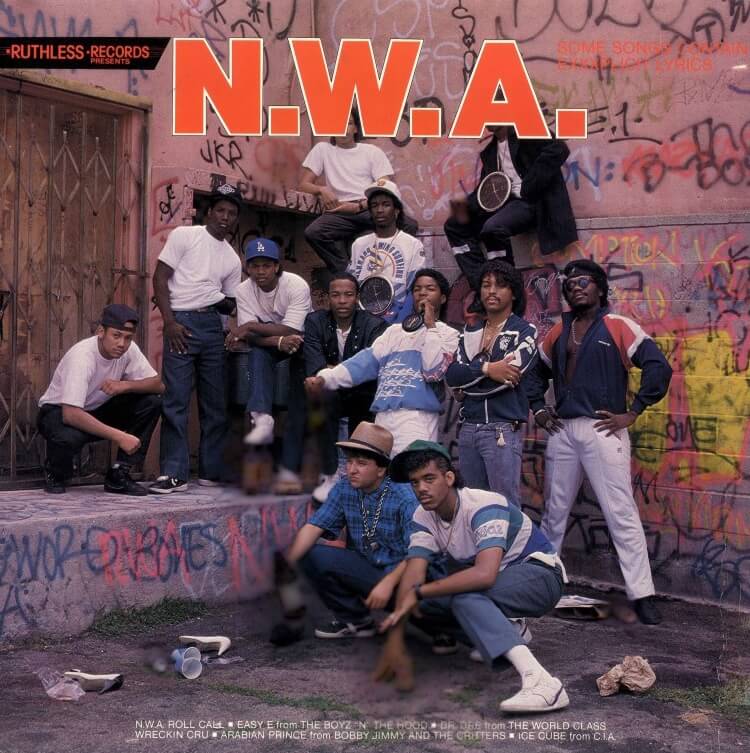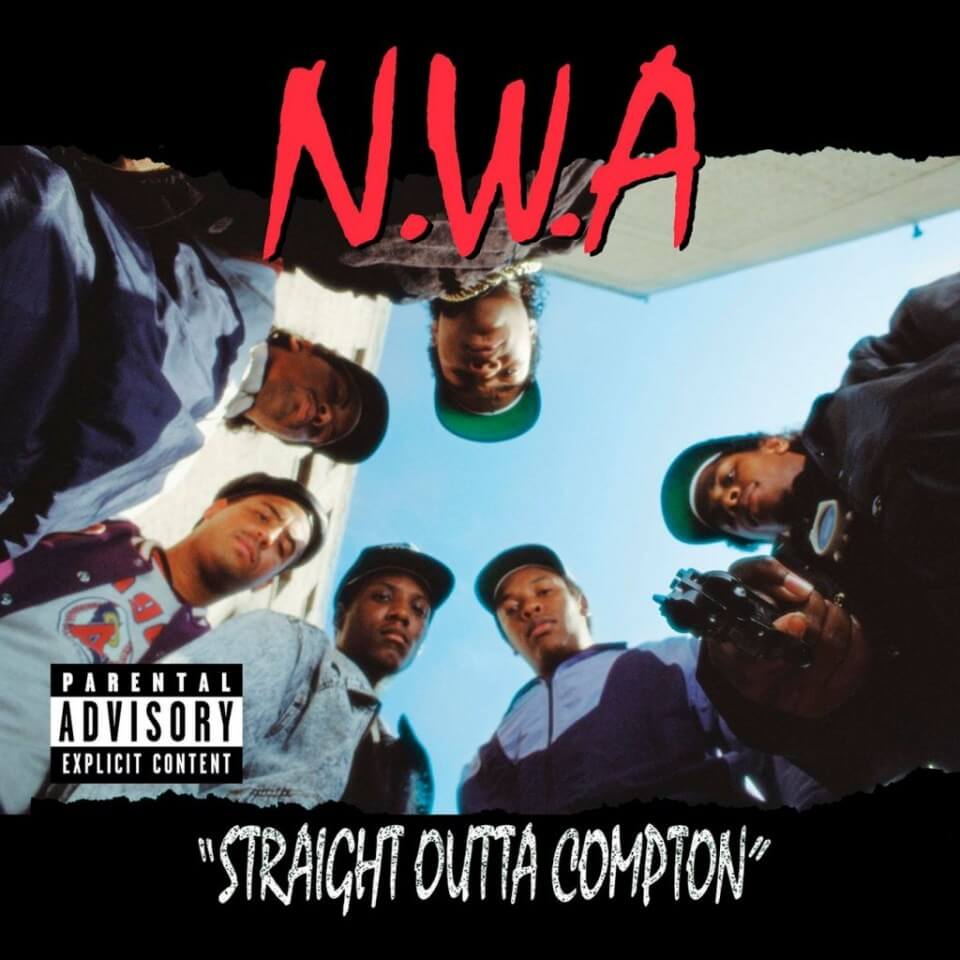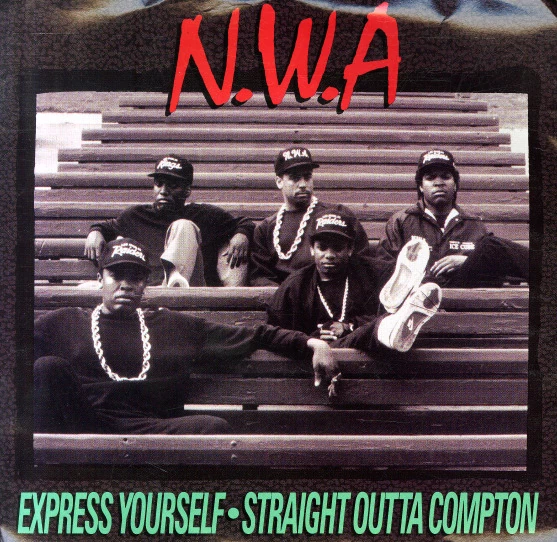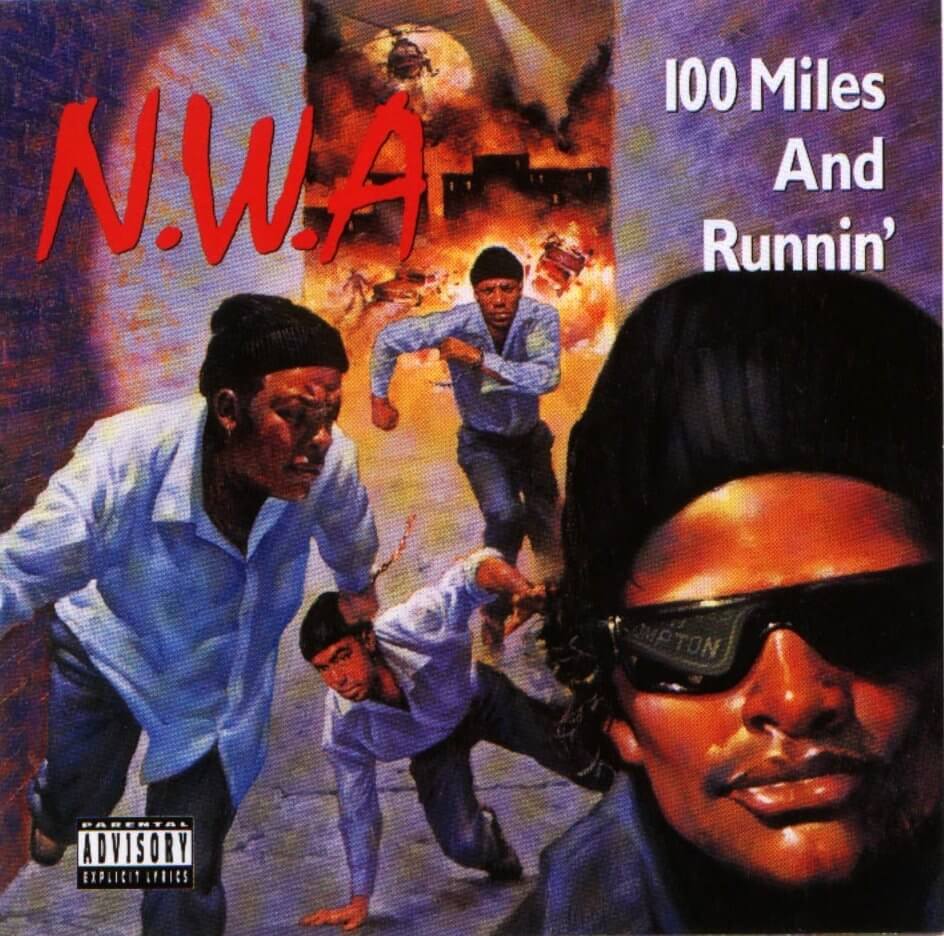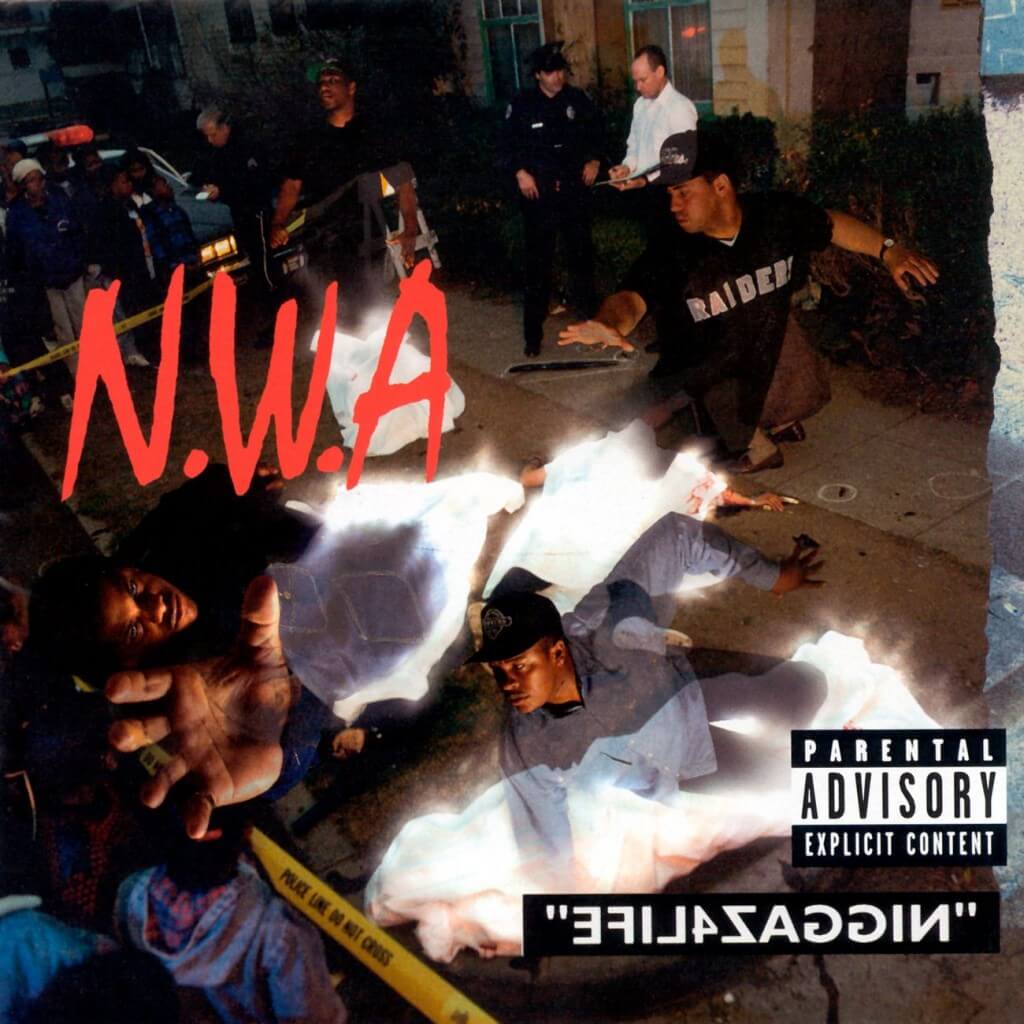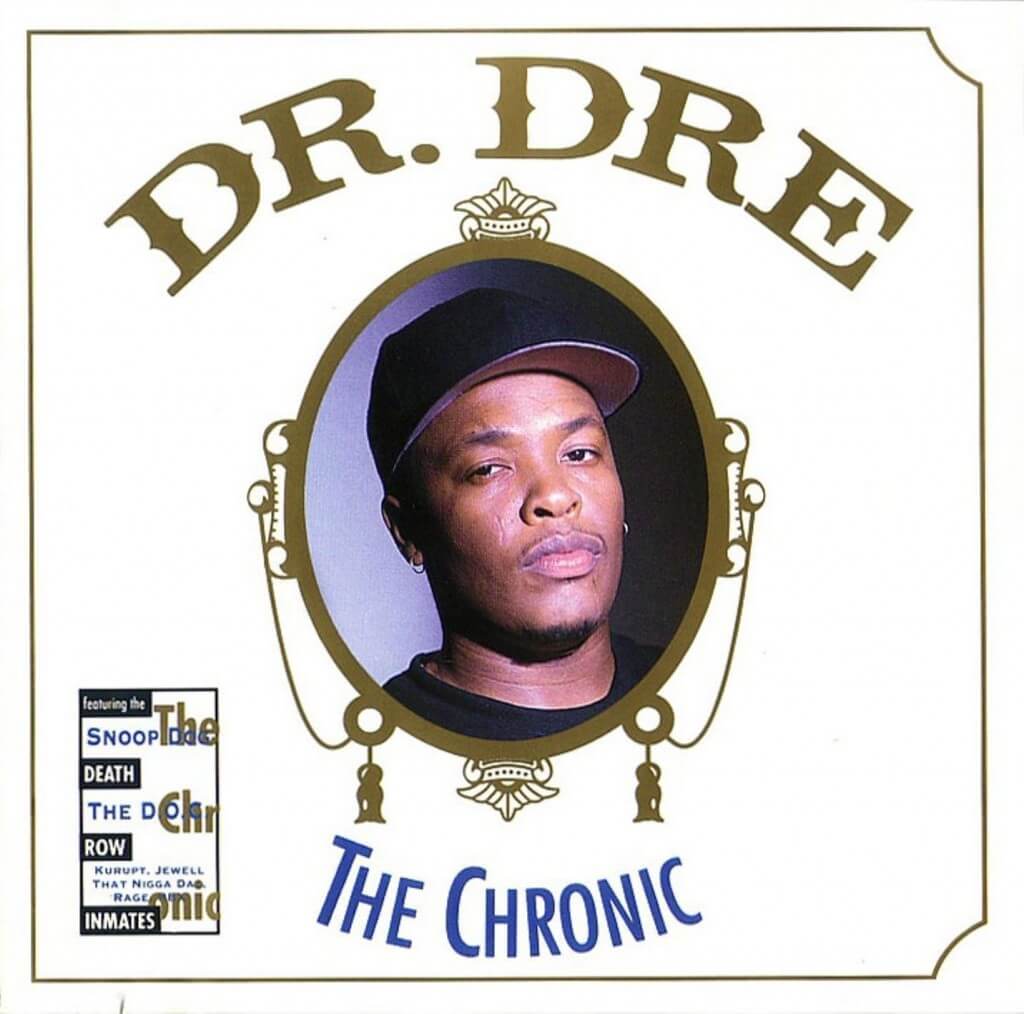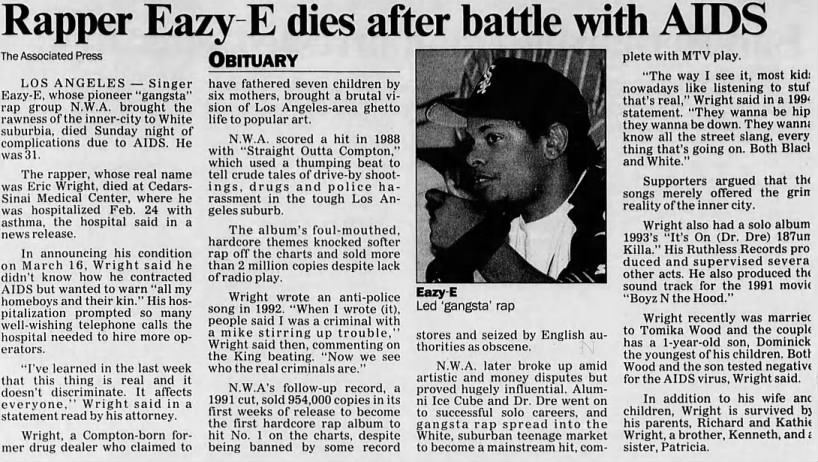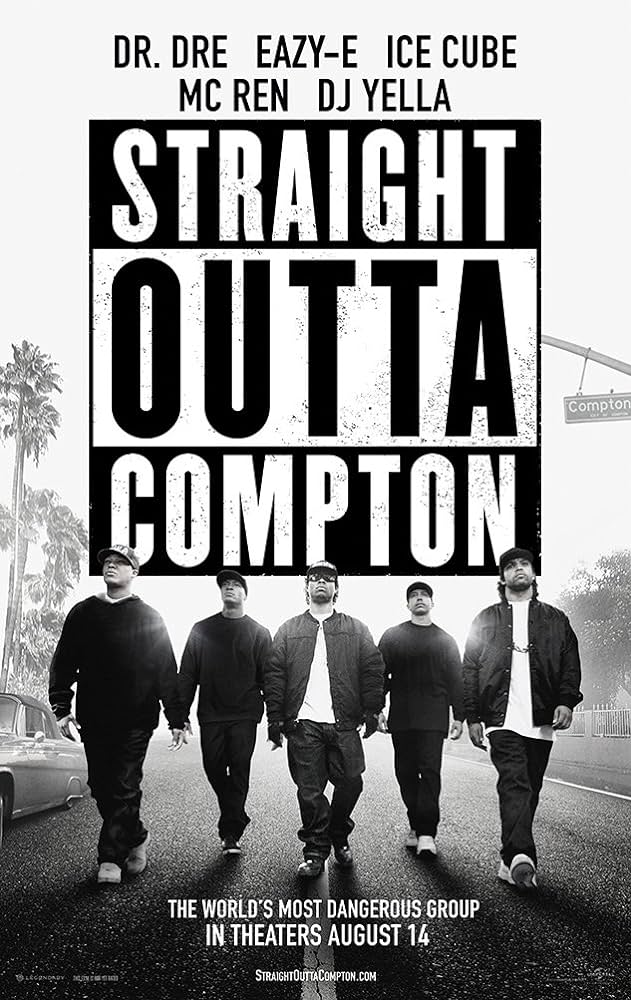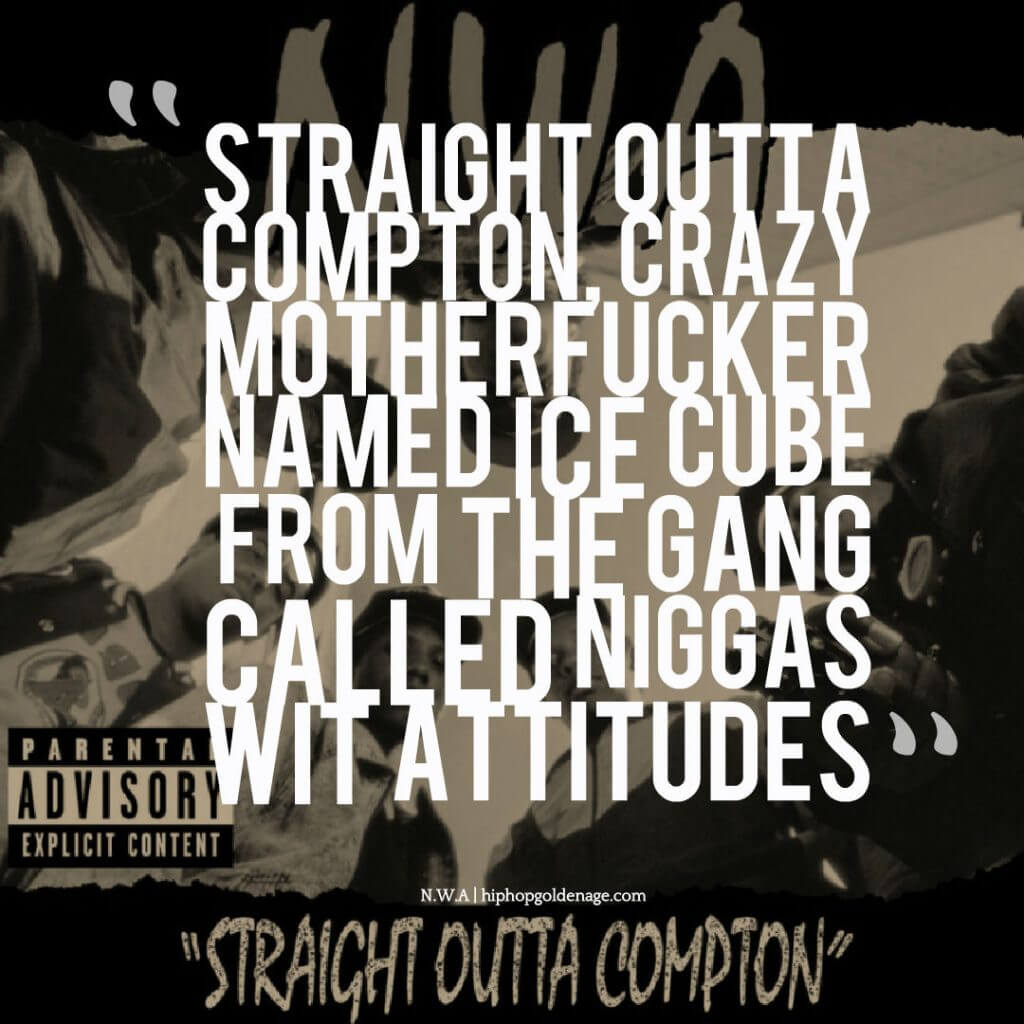
When N.W.A burst onto the scene in the late 1980s, they didn’t merely step into the world of Hip Hop—they bulldozed their way into it with an unapologetic sound and message that would forever alter the genre’s trajectory. Hailing from Compton, Los Angeles, N.W.A—comprising Eazy-E, Dr. Dre, Ice Cube, MC Ren, and DJ Yella—wasn’t about conforming to any established mold. Instead, they created their own rules, delivering raw narratives that reflected the harsh realities of their environment.
N.W.A’s impact on Hip Hop can be summarized in one word: seismic. Their debut studio album, Straight Outta Compton (1988), arrived at a moment when mainstream America was largely disconnected from the issues facing urban Black communities. The group’s music filled this void with a bombshell of sound and perspective, forcing both listeners and critics to confront the social, economic, and racial inequities that were too often ignored.
The Birth of a Cultural Force
N.W.A formed in 1986, amid rising tensions between the Black community in Los Angeles and the local police force. At the time, gang violence and drug epidemics plagued neighborhoods like Compton, and police brutality became an increasing issue, with residents experiencing systemic racism daily. This backdrop fueled the group’s creative output, shaping the content that would later make them icons in Hip Hop and beyond.
The group came together under the leadership of Eazy-E, a former drug dealer turned entrepreneur, who used his resources to start Ruthless Records. He enlisted the production talents of Dr. Dre, then known for his work with the World Class Wreckin’ Cru, and recruited Ice Cube, an emerging rapper with a sharp pen. The addition of DJ Yella and MC Ren completed the lineup, and the group was soon ready to hit the studio.
N.W.A and the Posse (1987), a compilation album featuring tracks from various artists, including early N.W.A songs, gave the group its first taste of recognition. Though not a groundbreaking release, it laid the foundation for what would come next: their 1988 album, Straight Outta Compton, that propelled them into national consciousness.
Straight Outta Compton: A Bombshell Album
When Straight Outta Compton dropped, it didn’t simply make waves—it caused a cultural tidal wave. The album was unlike anything heard before, with its abrasive lyrics, aggressive beats, and unapologetic commentary on life in the streets of Los Angeles. The title track, “Straight Outta Compton,” introduced the group’s ethos in no uncertain terms. With its hard-hitting verses from Ice Cube, MC Ren, and Eazy-E, the track set the tone for an album filled with stories of police brutality, poverty, and survival in an unforgiving world.
It was the incendiary track “F*** tha Police” that garnered the most attention—and controversy. The song, an unfiltered indictment of the police force’s treatment of Black Americans, attracted the ire of law enforcement and politicians across the country. The FBI even sent a warning letter to Ruthless Records, a move that only amplified the group’s defiant stance and raised its profile in the national media.
The production on Straight Outta Compton was equally revolutionary. Dr. Dre, with the help of DJ Yella, crafted beats that combined the rawness of West Coast street culture with a level of polish that hadn’t been seen before in gangsta rap. Songs like “Gangsta Gangsta” and “Express Yourself” balanced hard-edged street tales with a sense of musical innovation that displayed Dre’s burgeoning genius.
Straight Outta Compton struck a chord with listeners, particularly Black youth who identified with the group’s message. The album became a cultural phenomenon, selling over three million copies and paving the way for West Coast Hip Hop to dominate the mainstream in the years to come.
Ice Cube’s Departure and N.W.A’s Transformation
In 1989, following the massive success of Straight Outta Compton, cracks began to show within the group. Ice Cube, N.W.A’s principal lyricist, grew dissatisfied with the financial arrangements orchestrated by Eazy-E and the group’s manager, Jerry Heller. Cube, who felt he was being shortchanged, left N.W.A to pursue a solo career. His departure marked a significant shift for the group, as his sharp social commentary had been a core element of their lyrical power.
Ice Cube wasted no time launching a successful solo career. His debut album, AmeriKKKa’s Most Wanted (1990), produced by the Bomb Squad, was a critical and commercial triumph. It continued the rebellious, politically charged themes of his work with N.W.A, while showcasing Cube’s sharp lyricism and unique perspective on race, power, and inner-city struggles. His follow-up album, Death Certificate (1991), went even further in its unapologetic critique of American society, touching on themes of racial tension, police brutality, and Black empowerment. These albums not only solidified Ice Cube as a top-tier solo artist but also demonstrated that he could thrive creatively without N.W.A.
Ice Cube’s exit, however, didn’t signal the end of N.W.A’s reign. The group pressed on, releasing the EP 100 Miles and Runnin’ in 1990, which served as a prelude to their second and final studio album, N****z4Life (1991).
N****z4Life: The Next Chapter
N****z4Life (also stylized as Efil4zaggin when read backward) marked a darker turn for N.W.A. Released in 1991, it was a sonically impressive album, heavily influenced by Dr. Dre’s evolving production style. The beats were more polished, with funk samples and synthesizers that would later become hallmarks of Dre’s G-funk sound. Tracks like “Alwayz Into Somethin’” and “Appetite for Destruction” were filled with booming basslines and layered production that pushed the genre in a new direction.
While the album’s production dazzled, its lyrical content shifted toward more controversial and often disturbing themes. With Ice Cube no longer in the group, much of the sharp social commentary that had characterized Straight Outta Compton was replaced with shock value. Tracks such as “One Less B****” and “She Swallowed It” were laden with misogyny and violence, alienating some listeners and critics who felt the group was sacrificing depth for sensationalism.
Despite this, N****z4Life was a commercial success, debuting at No. 1 on the Billboard 200—making N.W.A the first rap group to achieve such a feat. The album’s success solidified their status as Hip Hop’s dominant force at the time, but it also represented the beginning of the end.
Dr. Dre’s Departure and N.W.A’s Dissolution
By the early 1990s, new internal tensions were bubbling within N.W.A. Now it was Dr. Dre who was frustrated with the financial arrangements that seemed to favor Eazy-E and Jerry Heller, and he began to distance himself from the group. Dre’s dissatisfaction, coupled with his growing desire to pursue a different musical direction, led him to leave N.W.A in 1991.
Dre’s departure was a significant blow to N.W.A. His production had been the backbone of the group’s sound, and without him, the group could not sustain its momentum. In the same year, Dre partnered with Suge Knight to form Death Row Records, where he would produce his magnum opus, The Chronic (1992). This album not only launched his solo career but also introduced the world to Snoop Dogg and solidified the G-funk sound that would dominate West Coast Hip Hop throughout the 1990s.
With Dr. Dre gone, N.W.A disbanded. Eazy-E pursued a solo career, but his output never reached the commercial or critical success of his former group. MC Ren and DJ Yella also released solo projects, but neither managed to achieve the same level of influence they had as part of N.W.A.
N.W.A’s Legacy
Though N.W.A was only active for a short period, their influence on Hip Hop and popular culture is difficult to overstate. Straight Outta Compton remains a cornerstone of West Coast rap, setting the stage for artists like Snoop Dogg, Tupac Shakur, and the broader G-funk movement that defined 1990s Hip Hop.
In many ways, N.W.A wasn’t just a Hip Hop group—they were a political act. They took the frustrations and anger of young Black Americans and turned them into art that forced the rest of the world to pay attention. Their music was confrontational, controversial, and cathartic, giving voice to people who felt voiceless in mainstream America.
Beyond their musical contributions, N.W.A’s members went on to shape Hip Hop in profound ways. Dr. Dre’s production legacy speaks for itself, with The Chronic and his work with Death Row Records being considered genre-defining. Ice Cube, after leaving N.W.A, carved out a successful solo career and eventually transitioned into a successful career in film, directing, writing, and acting. Even Eazy-E, who passed away in 1995 due to complications from AIDS, left behind a lasting imprint on Hip Hop through his work with Ruthless Records.
The 2015 Biopic and Cultural Resurgence
N.W.A experienced a resurgence in popularity with the release of the biographical film *Straight Outta Compton* in 2015. Directed by F. Gary Gray, the film depicted the rise and fall of the group, shining a spotlight on their music, struggles, and internal conflicts. The movie was both a critical and commercial success, introducing a new generation to the legacy of N.W.A.
This renewed interest in N.W.A’s story also reignited conversations about police brutality and systemic racism, themes that had been at the core of the group’s music from the start. In the wake of movements like Black Lives Matter, N.W.A’s early work took on renewed relevance, showing that the issues they had rapped about in the late 1980s were still very much present in America decades later.
Conclusion
N.W.A’s career was short-lived, but their impact on Hip Hop and society at large is impossible to ignore. They weren’t interested in creating radio-friendly hits or fitting into the mold of what the music industry expected. Instead, they used their platform to tell uncomfortable truths about life in the inner city, setting a new standard for authenticity in Hip Hop. Their contributions shaped the trajectory of the genre and inspired countless artists to follow in their footsteps.
While the group’s internal conflicts and controversial content sometimes overshadowed their message, N.W.A’s legacy endures as one of the most important forces in the history of Hip Hop. Through their music, they sparked conversations about race, justice, and inequality that are as relevant today as they were when they first released Straight Outta Compton.
